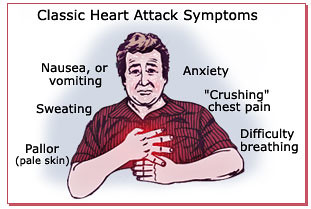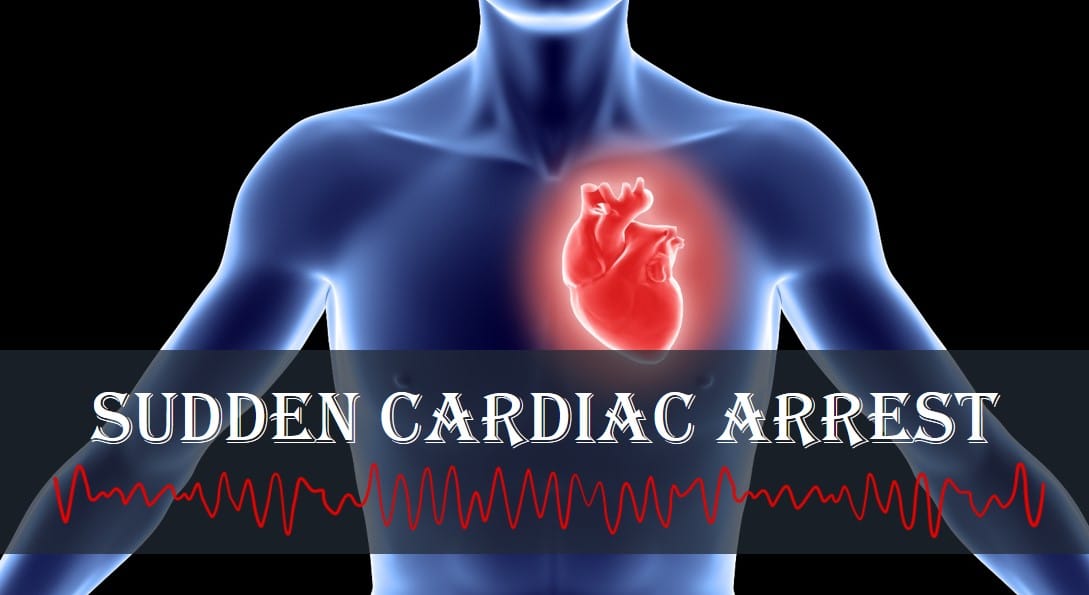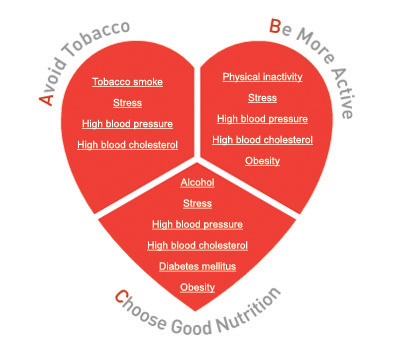Health - BLOOD CONDITIONS & DISORDERS - HEART ATTACK: The Tell-Tale Signs and Symptoms
People often expect a heart attack to be dramatic like it is in the movies, but the reality tends to be different and can even go unnoticed. Here are the tell-tale signs and symptoms of a heart attack:
What happens during a heart attack?
During a heart attack, the blood flow to the heart muscle is either reduced or completely stops. This typically happens because of a blood clot that is blocking an artery. When the heart muscle does not get oxygen-rich blood, it ceases to work.
Some common heart attack symptoms:
- A heart attack often causes chest pain.
Some symptoms that may also appear include:

- Pain in the abdomen
- Heart burn
- Unusual tiredness
- Nausea
- Tightness or pain in the neck, shoulders or upper back
Heart attack symptoms are not the same for everyone
Not everyone who has a heart attack has the same symptoms. Many a time, we also tend to ignore a heart attack thinking it might be mere abdominal discomfort due to gas pains or indigestion. If you have more than a few of the symptoms listed above, then you are likely to be having one. Get emergency help immediately.
A heart attack is different from a cardiac arrest

Sudden Cardiac Arrest Fact File
SCA is a chaotic electrical condition of the heart resulting in the loss of blood flow to the brain and body. The most common form of SCA is ventricular fibrillation.
Causes
Symptoms
Victim's Response
Risk of Death
Treatment
Heart Attack Fact File
The medical term for a heart attack is myocardial infarction: a blockage of the coronary arteries leading to a decrease in blood flow. When this happens, the heart muscles die or become permanently damaged.
Plaque made of cholesterol and other cells builds up in the walls of the heart’s arteries. When the build-up is great enough, the plaque creates a blockage, known as an occlusion, which restricts the blood supply to the heart muscle.
Symptoms
Victim's Response
The victim of a heart attack is usually conscious and alert.
Risk of Death
Most victims can recover fully and lead normal lives, but about a third of heart attacks are deadly. A heart attack can lead to sudden cardiac arrest.
Treatment
One treatment of a heart attack can be angioplasty, which opens up the blocked vessels with a medical balloon. Afterwards, a stent can be placed in the artery to help keep it open. Other treatments include clot-busting drugs called thrombolytics or nitroglycerin to reduce chest pain.
So, remember this information, and most of all, remember the ABCs of heart care: Avoiding Tobacco, stress and fatty foods,Being more active and Choosing the right nutrition and life style that will keep your heart healthy!
